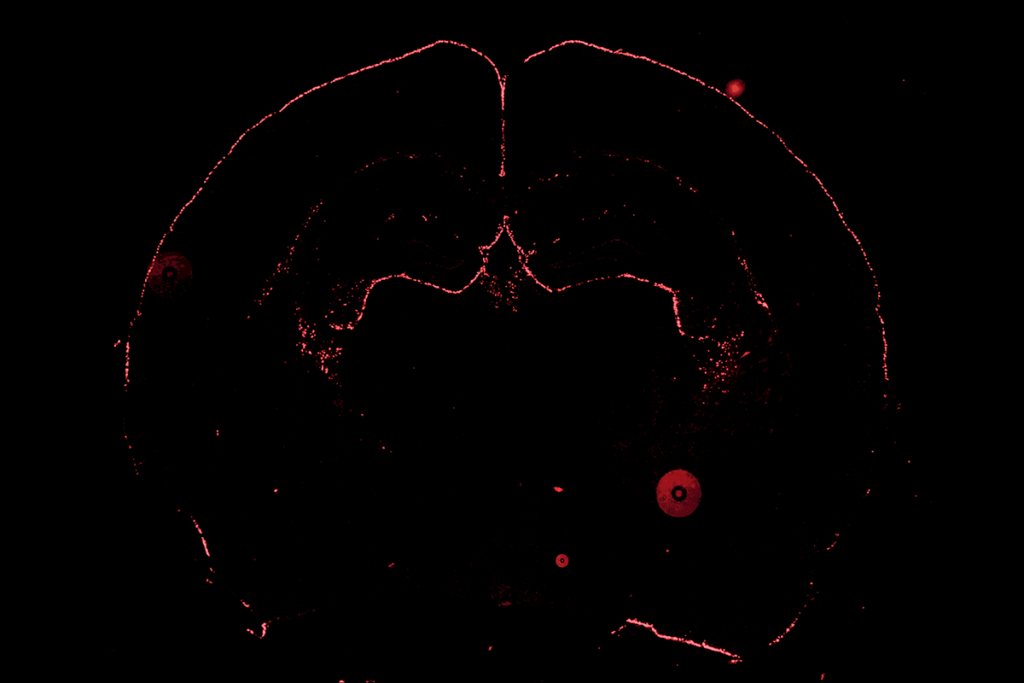Brain Inspired
Recent articles
This podcast, hosted by Paul Middlebrooks, features in-depth conversations with neuroscientists studying natural and artificial intelligence, philosophy, consciousness and other related areas.
Gabriele Scheler reflects on the interplay between language, thought and AI
She discusses how verbal thought shapes cognition, why inner speech is foundational to human intelligence and what current artificial-intelligence models get wrong about language.
Gabriele Scheler reflects on the interplay between language, thought and AI
She discusses how verbal thought shapes cognition, why inner speech is foundational to human intelligence and what current artificial-intelligence models get wrong about language.
Alison Preston explains how our brains form mental frameworks for interpreting the world
Preston discusses her research examining differences in how children, teenagers and adults integrate new information into their memories.
Alison Preston explains how our brains form mental frameworks for interpreting the world
Preston discusses her research examining differences in how children, teenagers and adults integrate new information into their memories.
Ciara Greene on the quirks and complexities of human episodic memory
Greene's book, “Memory Lane: The Perfectly Imperfect Ways We Remember,” explores the many factors that affect how we recall the events in our lives, from the mundane to the emotionally powerful.
Ciara Greene on the quirks and complexities of human episodic memory
Greene's book, “Memory Lane: The Perfectly Imperfect Ways We Remember,” explores the many factors that affect how we recall the events in our lives, from the mundane to the emotionally powerful.
Dmitri Chklovskii outlines how single neurons may act as their own optimal feedback controllers
From logical gates to grandmother cells, neuroscientists have employed many metaphors to explain single neuron function. Chklovskii makes the case that neurons are actually trying to control how their outputs affect the rest of the brain.
Dmitri Chklovskii outlines how single neurons may act as their own optimal feedback controllers
From logical gates to grandmother cells, neuroscientists have employed many metaphors to explain single neuron function. Chklovskii makes the case that neurons are actually trying to control how their outputs affect the rest of the brain.
David Robbe challenges conventional notions of time and memory
Inspired by his own behavioral neuroscience research and the philosophy of Henri Bergson, Robbe makes the case that we don't have clocks in our brains but instead perceive time by way of our interactions with the world.
David Robbe challenges conventional notions of time and memory
Inspired by his own behavioral neuroscience research and the philosophy of Henri Bergson, Robbe makes the case that we don't have clocks in our brains but instead perceive time by way of our interactions with the world.
David Krakauer reflects on the foundations and future of complexity science
In his book “The Complex World,” Krakauer explores how complexity science developed, from its early roots to the four pillars that now define it—entropy, evolution, dynamics and computation.
David Krakauer reflects on the foundations and future of complexity science
In his book “The Complex World,” Krakauer explores how complexity science developed, from its early roots to the four pillars that now define it—entropy, evolution, dynamics and computation.
Eli Sennesh talks about bridging predictive coding and NeuroAI
Predictive coding is an enticing theory of brain function. Building on decades of models and experimental work, Eli Sennesh proposes a biologically plausible way our brain might implement it.
Eli Sennesh talks about bridging predictive coding and NeuroAI
Predictive coding is an enticing theory of brain function. Building on decades of models and experimental work, Eli Sennesh proposes a biologically plausible way our brain might implement it.
Rajesh Rao reflects on predictive brains, neural interfaces and the future of human intelligence
Twenty-five years ago, Rajesh Rao proposed a seminal theory of how brains could implement predictive coding for perception. His modern version zeroes in on actions.
Rajesh Rao reflects on predictive brains, neural interfaces and the future of human intelligence
Twenty-five years ago, Rajesh Rao proposed a seminal theory of how brains could implement predictive coding for perception. His modern version zeroes in on actions.
Grace Hwang and Joe Monaco discuss the future of NeuroAI
Hwang and Monaco organized a recent workshop to hear from leaders in the field about how best to integrate NeuroAI research into the BRAIN Initiative.
Grace Hwang and Joe Monaco discuss the future of NeuroAI
Hwang and Monaco organized a recent workshop to hear from leaders in the field about how best to integrate NeuroAI research into the BRAIN Initiative.
Hessameddin Akhlaghpour outlines how RNA may implement universal computation
Could the brain’s computational abilities extend beyond neural networks to molecular mechanisms? Akhlaghpour describes how natural universal computation may have evolved via RNA mechanisms.
Hessameddin Akhlaghpour outlines how RNA may implement universal computation
Could the brain’s computational abilities extend beyond neural networks to molecular mechanisms? Akhlaghpour describes how natural universal computation may have evolved via RNA mechanisms.
Explore more from The Transmitter
Who funds your basic neuroscience research? Help The Transmitter compile a list of funding sources
We want to hear from you about the sources of funding for your research.
Who funds your basic neuroscience research? Help The Transmitter compile a list of funding sources
We want to hear from you about the sources of funding for your research.
The future of neuroscience research at U.S. minority-serving institutions is in danger
Cuts to federally funded programs present an existential crisis for the University of Puerto Rico’s rich neuroscience community and for research at minority-serving institutions everywhere.

The future of neuroscience research at U.S. minority-serving institutions is in danger
Cuts to federally funded programs present an existential crisis for the University of Puerto Rico’s rich neuroscience community and for research at minority-serving institutions everywhere.
Unexpected astrocyte gene flips image of brain’s ‘stalwart sentinels’
The genetic marker upends the accepted orientation of non-star-like astrocytes in the glia limitans superficialis.

Unexpected astrocyte gene flips image of brain’s ‘stalwart sentinels’
The genetic marker upends the accepted orientation of non-star-like astrocytes in the glia limitans superficialis.